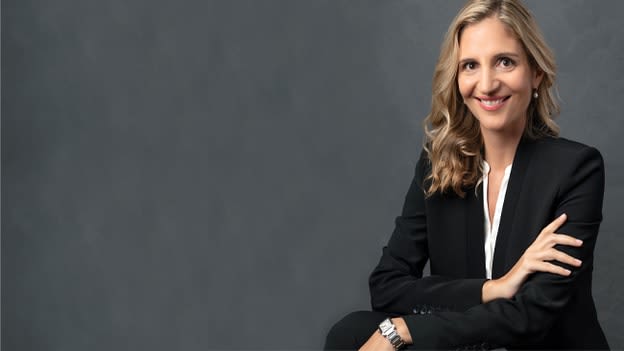Tomorrow's CHROs will be at the front of the business, says CCL's Elisa Mallis

When the global financial crisis hit markets over a decade ago, Chief Financial Officers were abruptly thrust into the limelight. Their work suddenly took on increased importance and scrutiny, an elevation that persists today. Now in 2020, with a global health crisis hitting workplaces in every country, human resources leaders are finding themselves in much the same position. What does this mean for CHROs?
People Matters asked Elisa Mallis, Managing Director and Vice President, APAC, Center for Creative Leadership, for her take on how COVID-19 is driving the evolution of the CHRO's role. Here's what she shared.
How much of a frontal role is the CHRO taking now as compared to before COVID-19? Do you see them being pushed to a similar level of accountability as CFOs were during the global financial crisis?
CHROs today are really in the centre of the COVID-19 storm as organizations are thrust into facing new and significant challenges. These include: leading and managing the people side of significant restructuring exercises, re-purposing talent and evaluating the skills and training they will need to pivot to the post-COVID world, keeping employees connected to and engaged in this sudden shift towards high-tech virtual working, and building a pipeline of Asian leaders ready to take on greater regional and global responsibilities in a shifting geo-political landscape.
More than ever HR needs to be in the front, along with business, developing the strategy, not just an ‘operational gate-keeper’. They need to work in tandem with the rest of the senior leadership to plan and reconfigure workflows, redeploy talent, help employees to reskill and upskill in order to stay relevant.
In our recent study, “CHRO 3.0: Preparing to Lead the Future HR Function in Asia”, HR leaders opined that the career path of future CHROs will be similar to that of current CEOs. There will be a premium on key skills and capabilities such as understanding of technology and analytics, familiarity with multiple disciplines, ability to manage change, and commercial acumen.
What are some of the central duties that CHROs now have to take on or invest greater resources into?
One role that CHROS are being called on to fill is consistent and continuous communication. In this sensitive period, it is crucial for HR to show empathy at the core of all communications. With so many uncertainties presented due to the crisis, employees are bound to feel a high level of stress and anxiety. Therefore, supporting the safety, physical and emotional well-being of employees must come first.
In our research, “The World Versus COVID: How to Win the ‘Second Set’”, we identified “High Tech, Human Touch” as one of the six paradoxes leaders must navigate. As the world goes virtual for a prolonged period of time, organizations will need to be deliberate about retaining their culture. HR needs to think through how the human touch is not compromised due to the high-tech environment. The collective and sudden immersion into the virtual and digital world is exposing employees’ need to belong to the organization’s community and be more authentic, possibly because they have lost the personal interaction at their workplace.
What are the foundational leadership traits that CHROs need going forward, to meet these expectations?
The fundamental leadership traits all HR leaders must have are: Self-awareness, Learning agility, Communication skills, Influencing ability, and Collaboration skills.
However, the HR function in Asia is struggling to keep up with the rapidly changing business environment. Only one in five leaders claim that their HR function in Asia is future-ready!
On the basis of experiences, career paths, and disciplinary background that incumbent HR leaders will have over the next few years, we are likely to see three profiles of Asian CHROs over the next decade:
Global business partners: leaders with deep HR expertise and a career spent in multinationals;
Business consiglieres: HR leaders who have spent the bulk of their career in business and made a midcareer switch to HR; and
New-age avatars: HR leaders in new age enterprises and startups who also wear a business and technology hat.
Would the CHROs of today need to upskill to make themselves more future-ready? How should they go about doing so?
CHROs are juggling a lot right now and having to balance demonstrating empathy and understanding of individual employees as well as tough love to help employees move out of their comfort zone in make the necessary pivot to a post-Covid business reality. “Empathy and Tough Love” is another one of the paradoxes we identified that leaders must navigate in “The World Versus Covid: How to win the ‘Second Set’”.
While they do need to upskill, they are also under tremendous pressure in many cases to go through restructuring that usually takes a year in the course of a couple months, manage individual mobility constraints for employees that have legal and tax implications, and support employee well-being in a time of escalating mental health issues in the extreme work from home situation we find ourselves in.
Prioritizing a couple of essentials to upskill in during this period will be important, rather than trying to take on too much. In many cases boosting their digital and digital transformation skills will be a good investment.
In preparation for the future, we recommend that Asian HR leaders make seven mind shifts. These are:
From Technology-shy to Technology-savvy
From Metrics to Insights
From Chief HR (Process) Officers to Chief Employee Experience Officers
From Doing-all to Doing-what-matters-most
From Inside-out to Outside-in
From Rule enforcers to Equal partners
From 'Helpers' to 'Doctors'
To build such skills, incumbent HR leaders or their managers will have to give themselves the benefit of and learn from crucible experiences like taking a bigger role to drive the refreshed digital transformation agenda, regional and global assignments, cross-functional rotations, process redesign.
How has COVID-19 changed the concept of "CHRO of the Future"?
The HR function will be challenged by the accelerated rate of digital transformation we are now experiencing and will continuing to experience, the rapidly shifting organization structures coming in play, the increasing workforce diversity and different expectations from a growing flexible workforce.
HR leaders we interviewed are unanimous in their view that the HR function will evolve into a very different ‘avatar’, especially around the broad role HR will play, deliverables HR leaders will be held accountable for, and the delivery model.
HR’s responsibility set in the future may become more multidisciplinary as hard lines between different functions will diminish. The delivery model of the much leaner future HR function will depend heavily on technology and outsourcing or shared services. In addition to attracting and retaining and training talent, there will be incremental challenges around technology-friendliness, flexible work arrangements, and innovation and creativity, that will define the overall success of the function. HR would need to establish future models of work with digitalization in mind.
As we look into the future and some normalcy returns, HR will be playing a significant role in helping both leaders and employees to regain their confidence and well-being.















